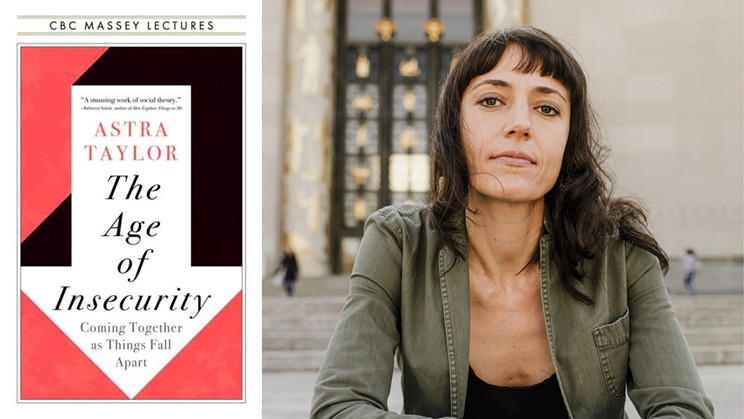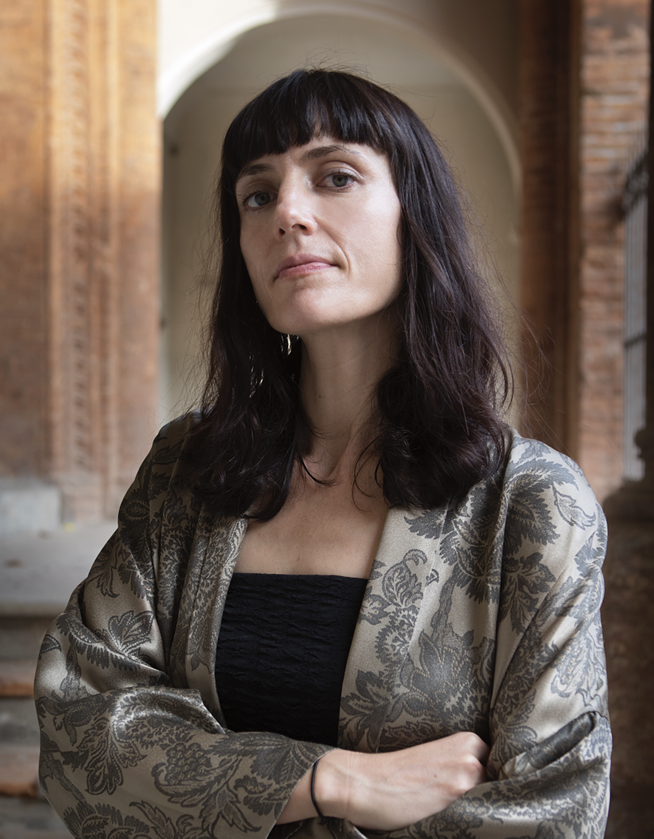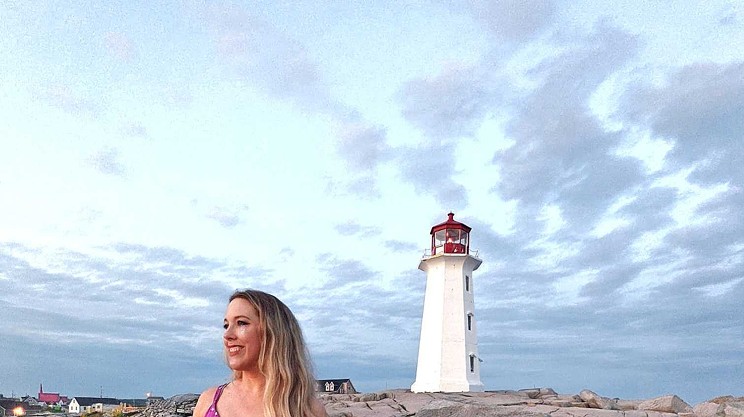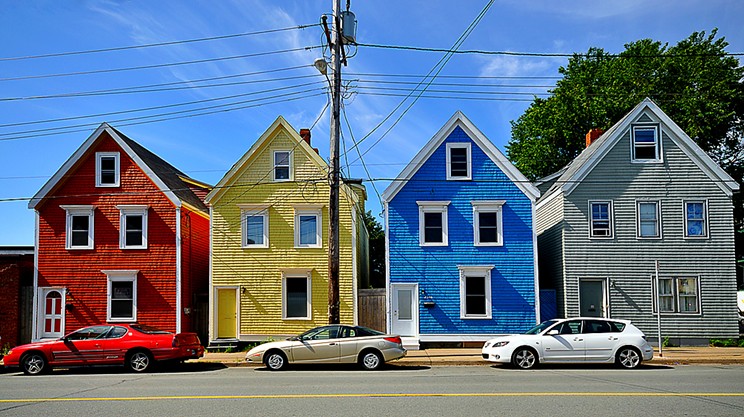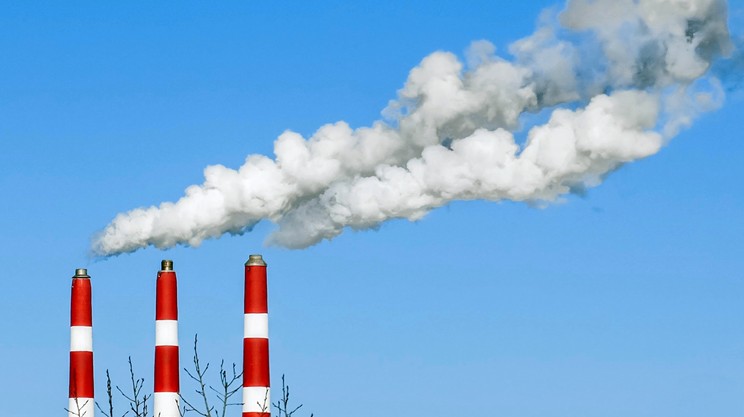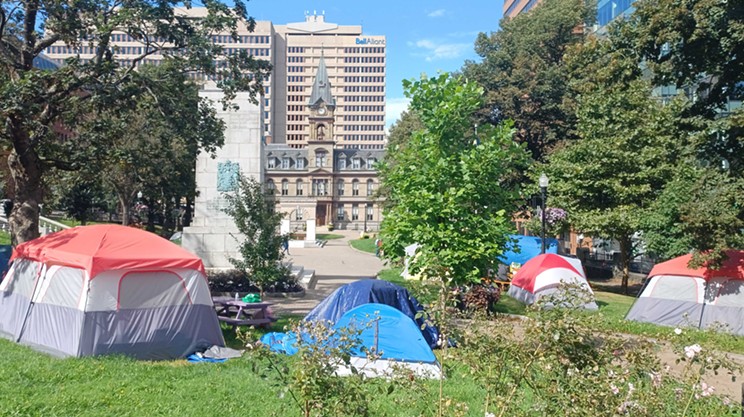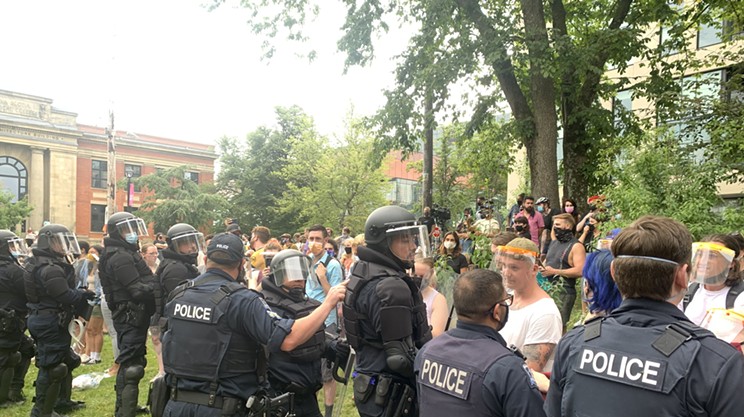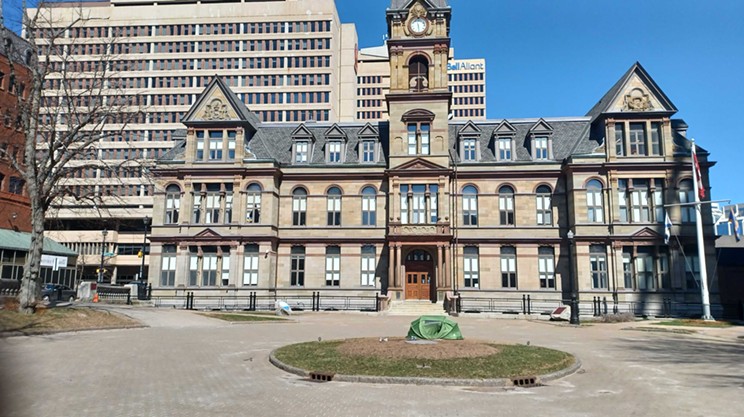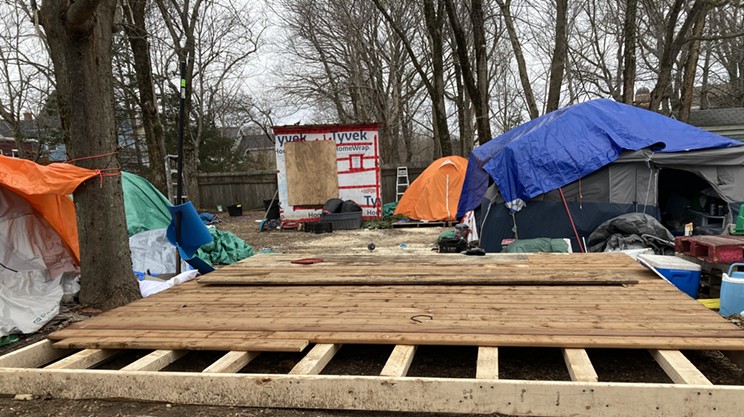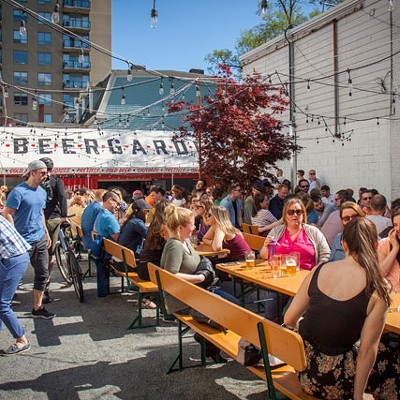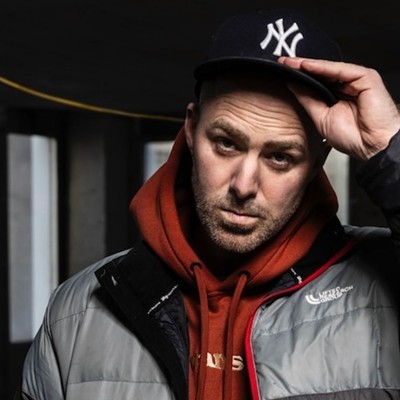In a year of wildfires, floods and ringing climate alarm bells, Astra Taylor has been thinking a lot about insecurity. Not just in the existential sense—“we’re all going to die,” the 43-year-old Canadian American filmmaker says, even if “we don’t like to admit that,”—but in the myriad ways, under capitalism in Canada and elsewhere, in which insecurity seems to surface by design. It’s there in the uneasy disconnect between Nova Scotia’s food banks seeing soaring demand and Atlantic Canada’s biggest grocers posting 31% profits. You could feel it in the air as towering, carbon-emitting cruise ships came into Halifax’s port while Tantallon and Hammonds Plains burned.
Halifax sees its biggest cruise ship arrival of the year today: The 5,600-passenger Oasis of the Seas. Last month for @TwitCoast, I wrote about the conundrum the cruise industry presents—and the risk it brings of polluting our oceans beyond repair.https://t.co/OYP0hSfrvh pic.twitter.com/GiImcRvVig
— Martin Bauman (@martin_bauman) May 31, 2023
It’s there, too, in the ads on your Instagram feed hawking flight sales to San Francisco, or a sleek new SUV, or the Swift tickets you can’t afford but goddamnit, you can’t afford to miss out on, either.
“Once you see it, it’s everywhere,” Taylor says, speaking by phone with The Coast. The ways we structure our society, she argues in her new book, The Age of Insecurity, make us less secure—but they can also do the opposite, if we’re willing to restructure. “I think when we recognize that, we can try [to fix it] together instead of just coping on our own.”
As the chosen speaker for the CBC’s 2023 Massey Lectures, Taylor brings her meditations on insecurity—formed through a career of activism and journalism spanning the Occupy movement to debt forgiveness—to five cities across Canada this fall, including Halifax this Friday, Sept. 8 at Neptune Theatre. The Coast caught up with Taylor to talk about what’s ailing our society—and how we can begin to fix it.
This interview has been lightly edited and condensed for clarity.
TC: In both your Massey Lectures and your new book, you have plenty to say about insecurity. Where did this idea come from for you?
AT: Well, when [CBC calls] you and invites you to give the Massey Lectures, the clock immediately starts to tick. I mean, first off, I was absolutely floored. I thought that they were calling me to ask me for some advice on an episode or something, because I’ve often contributed on that level. But the timeline is intense as a writer. And so I immediately said, “Well, what ideas have I been ignoring?”
I was in the middle of writing a very big book on the history of solidarity that’s coming out in March—so my go-to topic was sort of already in play [laughs]. And I had written this essay that came out right as the pandemic was starting, called “The Insecurity Machine.” It was for a tech magazine, and [they] were doing an issue on security. Out of nowhere, [the idea] fell to me, and I said, “I want to [write] about how capitalism is an insecurity machine—how we’re all made to feel insecure by design.” It’s not a completely original idea; if you look at stuff economists have written, if you look at the history of advertising, if you’re an organizer like I am, you just see it: An intense vulnerability.
But I just felt that there was something there. My instinct was that thinking about the way insecurity is central to our economic system might be a useful way of framing things; it might shed a different kind of light on our understanding of our condition. I’m often very gut-oriented, like, “Oh, I’m gonna make a movie where philosophers walk around,” and then the analytic part has to kick in.
Halifax is in the thick of a housing crisis. Nearly a tenth of homes listed for sale are now over $1 million—which has been a boon to homeowners, but has also created a growing population of Haligonians who are totally priced out. You raise the point that capitalism breeds insecurity—or it’s a feature, not a bug, of the system. How so?
Well, we’re used to thinking about capitalism through the lens of inequality—which, I think, is a really useful lens. I mean, capitalism is a system where capital drives things: We need to accumulate capital to amass a profit to find new markets to have incessant growth. But what is the lived experience of that? It’s insecurity. Because if you have your needs met, you don’t have to have endless growth—you’d have enough, right?
I think what drew me to insecurity is that it has a psychological component. It’s a term that describes the material and the emotional, which I think is really fertile terrain. I think part of the problem with economics is that it gets severed from the affective side, the emotional side. One thing I write in the first chapter [of The Age of Insecurity] is that insecurity gives us a snapshot in time: Here’s how many people are poor; here’s how many people are rich. Here we are, plotted on this income graph or wealth graph, but insecurity gets to how those points feel. How do we feel in the absence of a future that seems safe, in the absence of housing that is stable, in the absence of a job with a pension we can count on?
“How do we feel in the absence of a future that seems safe, in the absence of housing that is stable, in the absence of a job with a pension we can count on?”
tweet this
When you look at the history of capitalism through the lens of insecurity too, it’s right there at the beginning: Capitalism, all historians will tell you, begins with the enclosure movement, with the switch from feudalism to a market society. You have to force people off the land, get rid of subsistence agriculture—make people insecure in a material sense, so they will sell their labour. And we can all intuitively see the way insecurity is central to advertising, to consumption, to growth in these new markets; once you see it, it’s everywhere. Because if you want a labour force, you want to have atomized people who have nothing to sell but their labour. They can’t be secure.
You’re reminding me of a conversation I had with another author about “wicked problems”: These things that are so interlinked that when you pull on one thread, it’s tangled with a hundred others. This feels like a wicked problem. We know this about capitalism: We know that the system we’re in is broken, and that it can’t continue indefinitely; we know we’re being sold things we don’t really need. Why do we keep buying into it?
It’s a great question. You know, we’re all free but not totally free, right? I think we have to find the margins of our freedom and act to the max capacity. At the end of the [my book] Solidarity: The Past, Present, and Future of a World-Changing Idea, there’s actually a coda that’s about virtues. And virtues are a kind of Aristotelian idea that we should cultivate certain traits in ourselves—traits we want to see in the world. So I think there are actions we can take. We’re not automatons just driven by capital, driven by insecurity, and thus destined to keep replicating the system we’re in—far from it. But we have to keep the individual and the collective in mind and how there’s a kind of feedback loop between them. So I think the question is, well, how do we respond to structural insecurity?
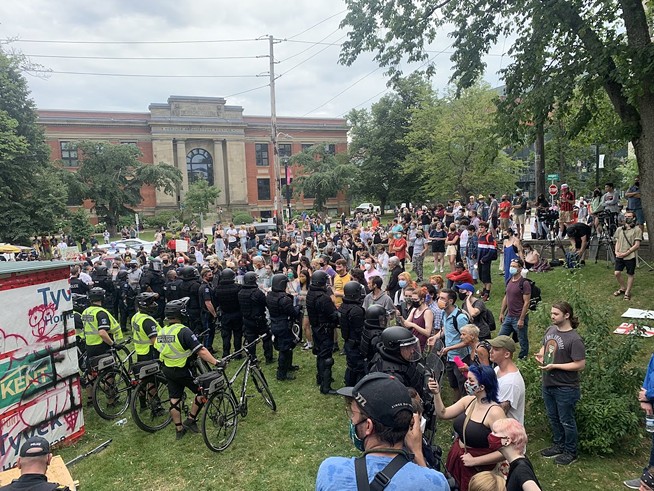
As I write in the book, it can be a conduit to empathy. You can go, “Wow, hold on. Why do I have to strive and scrimp and save, just so I might have the chance of living a dignified life in old age?” That makes me see the struggles of somebody else in a different way. And then you can build solidarity and fight for social change.
I don’t think insecurity is something we’re ever going to eradicate. We are vulnerable beings, we’re going to be wounded emotionally and physically. We’re going to die. There’s a whole lot of philosophy out there that’s about how the core of our problems is that we don’t like to admit that. But the way we structure our society makes us more insecure and less so. And I think when we recognize that, we can try coping together instead of just coping on our own.
You’re delivering these Massey Lectures in five cities across Canada, including Halifax on Sept. 8. Here—like many other cities across Canada—we’re feeling insecurity in myriad ways: Not only is Halifax experiencing a housing crisis, but the HRM is grappling with food insecurity—and now, after a record summer of forest fires and floods, there’s an added layer of ecological insecurity. More than 16,000 Haligonians were displaced from their homes this past summer. How much of all of this has been on your mind in the crafting of your talk and this book?
I mean, all of it. Somebody read the book recently and told me, “This is kind of the culmination of all your thoughts over the years.” I think it’s a little bit of a product of wanting to write something that’s relatable. Knowing it would be broadcast on the CBC, knowing that people would come who didn’t really know me or my weird back catalogue [of work], I wanted to write something that speaks to our condition—and our condition is one of these intersecting crises and mounting insecurity.
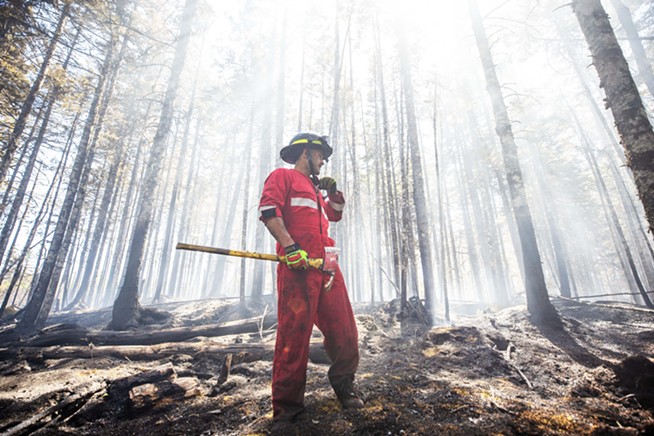
The [COVID-19] pandemic intensified it, and I think also showed us—just like climate change—the way some people flee from insecurity into denial. I wanted to show that these, actually, are related. They all have similar causes. It’s not just a housing crisis; it’s not just an environmental crisis; it’s not just an insurance crisis; it’s not just a crisis of the welfare state—they’re all connected.
And with housing, I tried to show that even if you get to the point where you’ve managed to buy your little property—or big property—and you have a mortgage on it, that mortgage is going to jump in its interest rate. What’s going to happen when it jumps again in five years? What I’m trying to get at is even when it seems like you’re getting there, you’re managing the climb out of whatever precarity [you’ve known], our system is structured so that you have to worry at every step of the ladder; you cannot rest. It’s not because people are selfish; it’s because we’re not working together collectively to catch one another.
“What I’m trying to get at is even when it seems like you’re getting there, you’re managing the climb out of whatever precarity [you’ve known], our system is structured so that you have to worry at every step of the ladder; you cannot rest.”
tweet this
I mention this in the book: I got a mortgage. I want a house, right? I want to be secure. I would just prefer it if we could think of another way of keeping people from having to live in the streets, because this inflated housing bubble is causing all these pernicious negative consequences. And this lens of insecurity, I hope and feel, reveals some of these connections in fruitful ways.
I was reading your New York Times essay that’s excerpted from your book, The Age of Insecurity. One of the notions that you seem to be getting at is all the ways in which our system—at least the one we predominantly live in the West—leads to zero-sum outcomes. If you’re lucky enough to win the housing lottery in Canada, that often comes with the knowledge that as your house’s value is going up, it’s getting harder for somebody else to afford a home.
Right—maybe even your kids.
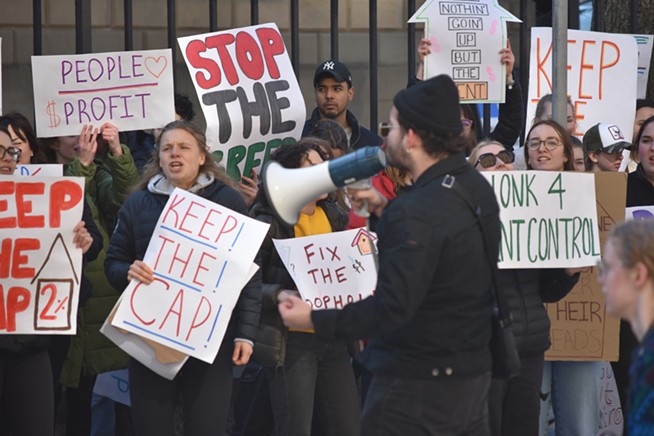
Is our system truly zero-sum in your eyes?
I wouldn’t use the word zero-sum. I have the metaphor, it’s like an ouroboros—a snake eating its own tail. Like, so many of the systems that promise us security actually undermine it. I’m more familiar with the history of the US, but it’s very analogous to Canada. In the 1970s, they basically invented 401Ks, which are private retirement accounts—kind of like RRSPs. And the people who had pensions moved them away from defined benefits to sort of contingent benefits, like based on how you do in the stock market. But we know the solution to this problem: It’s figuring out how to have a universal pension plan.
There used to be, in the Great Depression, this movement called the Townsend Plan. It was millions and millions of older people being like, ‘Hey, we deserve to live. We’re old.’ A core part of our problems is that we don’t have security in old age. And that’s why you need your house to appreciate, right? It’s so that you can have a bank account. But you see it today, more and more delivery people who are in their 60s and 70s dropping off DoorDash and things like that. I think so many problems flow from that lack of security in our final chapter of life. And as we move toward private investment schemes as a supposed source of security in old age, I think you really see the snake eating its tail. You look at these Nordic countries that have these sovereign wealth funds, which in theory, are there to build public wealth. But they’re invested in Uber and Apple and fossil fuels.
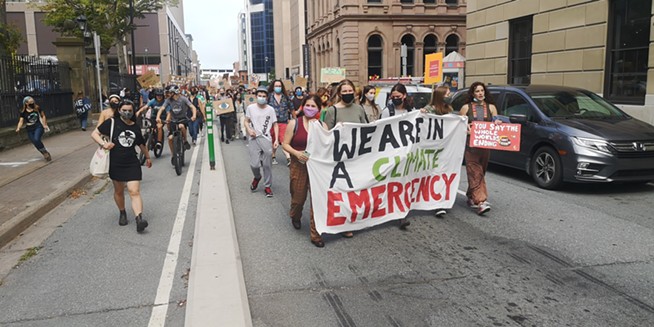
You know, these solutions aren’t rocket science: The solution to job insecurity is to make jobs secure again—to revive some of those old commitments that employers had to make to their workers, or move towards a worker cooperative model where workers are less dependent on the whims of the boss. But I think the point is that we’re in a situation that is highly destructive, and kind of ironic in the sense that the things [we count on for security] aren’t granting us the security we need. But there are solutions out there right in front of our faces. What’s needed is the power and solidarity to win those structural changes.
You make reference to the Occupy movement in your New York Times essay. It struck me as funny, because I was just thinking about it a week ago: Here we had a major protest movement that spanned countries, and it feels like all of the same things that we were upset about 12 years ago are still happening now. You were involved in chronicling the movement as it happened. What came of it, from your perspective? Did anything change? Or why is it that, so often, we can feel like we’re on the cusp of change only to wind up back in a similar place?
Well, I mean, we’re not in a similar place. If you look at the Occupy movement—at least the American version, which is the version I’m most familiar with—we were concerned with inequality and the corruption of democracy because of the concentration of wealth. I mean, those problems are worse today. [Occupy] came after a Supreme Court case between Citizens United [and the Federal Election Commission], which essentially took the brakes off of campaign finance contributions. We’ve had multiple cases that have only made that more extreme [in the US]. And wealth inequality is more extreme: The pandemic and the K-shaped recovery only heightened that dynamic.
I do think Occupy was really significant—at least in the US—in that it put inequality and class back on the agenda. We now have democratic socialists in Congress. There’s five or six of them, but that’s amazing. And Bernie Sanders remains the most popular politician—which, I think, is telling. But Occupy was a kind of spontaneous expression of indignation; it wasn’t organized. And so what my efforts are focused on is getting organized—this is why the labour movement stopped working. We’ve had far bigger protests since Occupy, too. We had 25.6 million people out for Black Lives Matter in 2020. We’ve had huge women’s marches. We’ve had climate strikes. But it’s better to be smaller and organized over the long-term, and be more strategic.
The Debt Collective emerged from the ashes of Occupy thinking, like, “How do we actually affect the power structure? And how do we dig in over the long haul, so even if there’s an adversarial administration, we can keep building and not disappear?” So I’m grateful to Occupy, because I think it did kind of shift the political terrain—but it’s still up to us to make good on that.
In mentioning the Debt Collective, that seems like a good place to talk about solidarity. Because it’s fine as a concept to say we need to come together, but you’re showing what can happen when people do.
I think for me, the Debt Collective has been an interesting experiment. Like, I dream of a majoritarian movement, but we don’t need everyone to have a profound impact. We misremember when we look back on history with rose-coloured glasses. The civil rights movement began with a tiny, tiny group of people going up against a very entrenched and popular status quo—and they were loathed. The same with women who were fighting in the first wave of feminism for the right to vote. I mean, [they were] unpopular, hated, despised. And slowly, slowly shifting the dominant consensus.
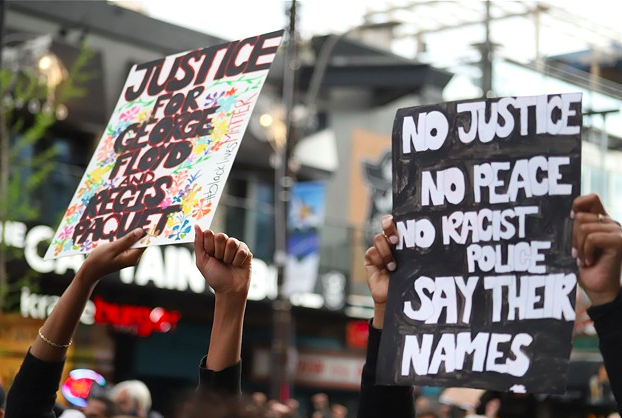
So with the Debt Collective, labour unions are amazing, racial justice organizing is amazing, tenant organizing is amazing, community organizing is amazing—but hey, all of these people have debt, and by the way, a whole fucking lot of Canadians have debt. Our idea was that debt is actually an asset; it’s someone else’s assets—it’s on someone’s books somewhere. And why are we in debt? Not because we’ve lived beyond our means but because we’ve been denied the means. Living wages have stagnated. So then you have to borrow to put food on the table. And in the US, there’s no health care, so most bankruptcies are tied to medical bills. So what, you get cancer and then your life has to be ruined? That’s bullshit.
Our idea was, maybe there’s something here—maybe we can change the way people understand themselves and kind of cast away shame, because it’s shameful to be in debt. And maybe there are political strategies that can flow from this. So our work began with this team of debtors who had been defrauded by a major, predatory for-profit college. They went on a debt strike. We coupled that with creative legal strategies, we started building a base and because of them, we’re now up to tens and tens of billions of dollars of debt cancelled by the government. We’ve changed the conversation to the point where President Biden tried to [pass] what would have been the largest wealth transfer in memory in the United States. $450 billion would have been cancelled for people who are in debt and need that relief. Of course, the Supreme Court has stymied it, but we’re continuing to fight. And the point is, we were just a small group.
Even though things seem so immovable—and I’m talking here about the US government—even we little weirdos have been able to change things.
This idea that all of us humans have to come together gets bandied about a lot—and you hear it in all avenues, often from places of power that want to shift attention away from their own responsibilities. There’s the motto that we all have a role to play in curbing pollution, or we all have a shared responsibility for road safety—regardless of who pollutes the most, or which kind of transportation comes with the greatest risk to others. Is that the kind of solidarity we’re counting on?
Objectively, I think we all benefit from a climate that’s not in chaos. But that’s not the way our society is structured. In Solidarity, there’s a whole chapter on polarization, and how solidarity requires an “us” and a “them.” Personally, I’m all for making as big an “us” as possible. This is why I’m like, “Hey, renter, you can actually be an ally with someone who has a mortgage, because your interests are more aligned than you might think.” Or non-college graduates and college graduates actually have more in common than you might think, because both are going to be temporary workers—just one’s a little fancier.
I do think you need to name an adversary. And we need polarization—not just, like, “Can’t we all get along?” We need to fight. But that is the fight we’re trying to have. And I think this is where a left-wing populist like myself is different from a right-wing one: The position that we’re opposing is structural. Billionaires shouldn’t exist, because people shouldn’t have that much wealth and power. So take the individual who’s a billionaire and just make them a millionaire. We’re not trying to, like, annihilate them as a person—instead of the right-wing line that says, “The problem is immigrants, the problem is Black people, the problem is trans people.”
You’re going to have antagonism. The Debt Collective didn’t go, like, “Hey, could you please cancel our debt?” We went on debt strike. We told people they were corrupt, that they were upholding a corrupt system, and that there are people profiting from it. You have to piss some people off, and get pissed—with love. Get pissed off with love. Because people deserve better than what they’re getting right now.

